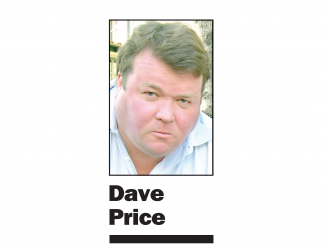
By the Daily Post staff
Los Altos residents have voted down a $1.1 million storm drain fee that city officials said was a critical need, and critics said was unnecessary and disingenuous.
The total was 2,039 in favor and 2,570 against, a ratio of 56% to 44%.
“A significant majority has made it clear we should use our current revenues to fund this basic infrastructure maintenance,” Mayor Lynette Lee Eng told the Post in an email. “(Councilwoman Anita) Enander and I did not support putting this measure to a vote because we felt no additional financial burden should be placed on residents. With this vote, we know that the majority of residents feel the same.”
The fees would have ranged between $72 and $117.59 a year for an owner of a single-family home or condo. The city would be able to increase fees up to 3% a year to correspond with inflation.
Councilwomen Jan Pepper, Jeannie Bruins and Neysa Fligor voted in April to put the fee to a vote after City Manager Chris Jordan brought the item forward. Bruins and Fligor couldn’t be reached for comment Thursday.
“We are disappointed with the results of the storm drain fee ballot. The City Council has long prioritized maintaining and improving the city’s infrastructure,” Jordan told the Post in an email. “This fee would have provided dedicated funding to better improve a critical part of the city’s infrastructure.”
Opponents argued that the city hadn’t made its case for the fees and said that the city could fund the storm drain work with its existing general fund budget, which it has done for years. Retired civil engineer Jerry Clements, a 40-year Los Altos resident, called the fee a “devious and slick” plan to beef up the general fund for other purposes.
Clements told the Post in April that he questioned the city’s stated need to repair and upgrade 55 miles of pipes, stating that in his decades of work he’s never heard of storm drainage pipes — which are at least 1 foot in diameter and made of reinforced concrete — having to be replaced.
Vice Mayor Pepper said Thursday that she was disappointed by the results, and challenged Clements’ assertions.
“I’m a civil engineer as well,” Pepper told the Post. “There is a need for making sure that our storm drains are working properly. When it’s not raining a lot and we have a drought, it may feel like we don’t need it.”
Pepper said the council would need to rethink how the city’s storm drain needs are funded and that the city would “probably have to cut back on everything that’s needed to be done.”
“Given the results, it looks like we didn’t properly educate people on the need,” Pepper said. “I think the need was identified, which is why we went out for this specific funding for this, so I think we’ll just have to take another look and figure out what our next step will be.”
The ballots were counted Wednesday (June 19) at City Hall by city employees and employees of a consultant hired to promote the measure. The election was required under Prop. 218, a 1996 state Constitutional amendment that regulates how cities are able to increase fees. The city was not required to turn the election over to the Registrar of Voters in San Jose, which runs the regular elections like those in November.
Also, the entire election was conducted through the mail, without any polling places.
Council watchdog Roberta Phillips said the results were “a real, unequivocal message to the city and our city manager that we don’t want any increased taxes and fees.”
Phillips noted that she was disappointed that “the people who did the sales pitch” for the fee — referring to the SCI Consulting Group, who branded the project the Clean Water and Sustainable Storm Dranage Initiative — had been involved in counting the ballots.
In an email to the Post, Los Altos resident Pat Marriott wondered why, if maintaining the city’s stormwater system has been known to be of a high priority and in need of funds, the city had spent capital improvement project dollars for public art projects, shade for the Veterans Community Plaza, a “streetscape design” for First Street and a “visioning” plan for downtown.
“If the stormwater system is so important, why don’t we have a ‘dedicated and sustainable source of funds’ for it?” Marriott asked. “City Hall needs to learn how to prioritize!”
While the results of the election could be found in the agenda for Tuesday’s council meeting, as of Thursday night there was no mention on the city’s Facebook page of the results. The section on the first page of the city’s website devoted to the storm drain issue also doesn’t mention the election outcome.
At an April 24 council meeting, several residents asked why the city couldn’t use money out of the general fund, pointing out that the $1.1 million a year only amounts to 1% of the city’s budget for capital improvement projects.
Councilwoman Bruins defended the fees, explaining that while the city does take in millions in revenue, it also has steep expenses to cover.
Bruins said the council had been discussing having a dedicated funding source for stormwater projects for years, leading to a stormwater master plan in April 2016.
The last time the city government lost at the ballot box was in November 2015 when a bond measure to replace the Hillview Community Center failed 71.1% to 28.9%.
After the vote, then-Councilman Jean Mordo said, “I don’t know how to figuratively eat humble pie, but I’m doing it.”
The community center bond issue, known as Measure A, was criticized because some residents felt it was too large and that the community was left out of the consultant-driven planning process for the measure.




The city spent $356,200 for the stormwater master plan between 2009 and 2015. Then in 2019 — after all those years — it had suddenly become a higher priority than police, fire, and other critical municipal functions, according to the city manager.
Thus, the city had to spend $454,323 on another consultant to sell the fee to residents. Fortunately, residents were smart enough to see through the sales pitch. What a waste of money!
Sorry, wrong number. The cost of the “sales” consultant was $98,123. The TOTAL cost was $454,323.
$435,323 would have paid for a lot of storm drain work … seems like the city was more interested in establishing a forever tax than actually fixing the problems such a tax was supposed to address.
if counsel wants to fix the storm drains, get the money by firing some of the overpaid administrators in the city government
Los Altos City Council voted for a consultant study for $100,000 on the potential for a community pool. This is a LOT of money considering the entire Downtown Vision project was $300,000.
All these frivolous expenses, when City Hall unilaterally decided to take alternate Fridays off, and ZERO accountability. It is time voters step up to provide the necessary checks and balances as three on City Council seem incapable of that.
Los Altos is alone in the surrounding cities in its favor to bring business and industrial revenue into the city, unlike, e.g., Mountain View and Sunnyvale.
I don’t follow the city council that closely, so correct me if this is wrong. But the council members who favored this tax were:
Jan Pepper
Jeannie Bruins
Neysa Fligor
The council members who were against the tax were:
Lynette Lee Eng
Anita Enander
Because of this issue, I now know who I will vote for in the next election and who won’t get my vote.
> the city was more interested in establishing a forever tax
Yes, and we know who the Council members who were complicit in this deception and deliberate misrepresentation: Bruins, Pepper, Fligor.
Note that coming up July 11 Council meeting is a proposal for raising all fees.
See https://www.losaltosca.gov/sites/default/files/fileattachments/city_council/meeting/48034/9.cost_allocation_plan_and_user_fee_study.pdf
To sum it up: Engineering fees up 8%, Planning fees up 10%, Building fees up 28%, Maintenance Services up 40%, Recreation fees up 9%, Miscellaneous fees up 15%, Police fees up ‘a small amount’ (Can someone define what’s “small”?).
Expect the same trio (Bruins, Pepper, Fligor) to approve this proposal unless Los Altos residents show up and speak out loud and clear they are AGAINST it.
Fees are set to cover the cost of providing services and cannot exceed those costs. When the fees are set too low then the general fund subsidizes those services.
With or without the storm drain fee the city must maintain the storm drains. Something else will have to be cut, summer concerts, library hours, road paving, police, etc.
Developers are thrilled when cities set permit fees, inspection fees, and planning fees too low and subsidize developers with property tax money from the general fund.